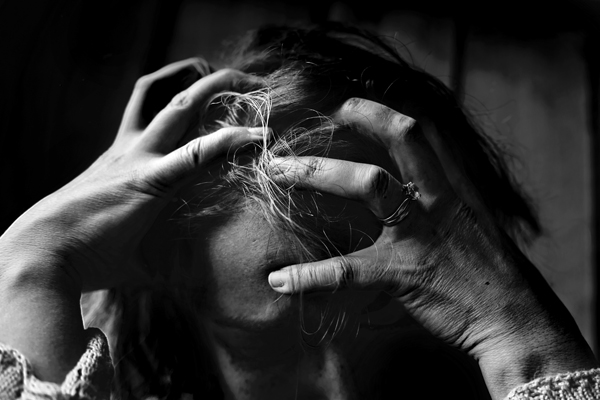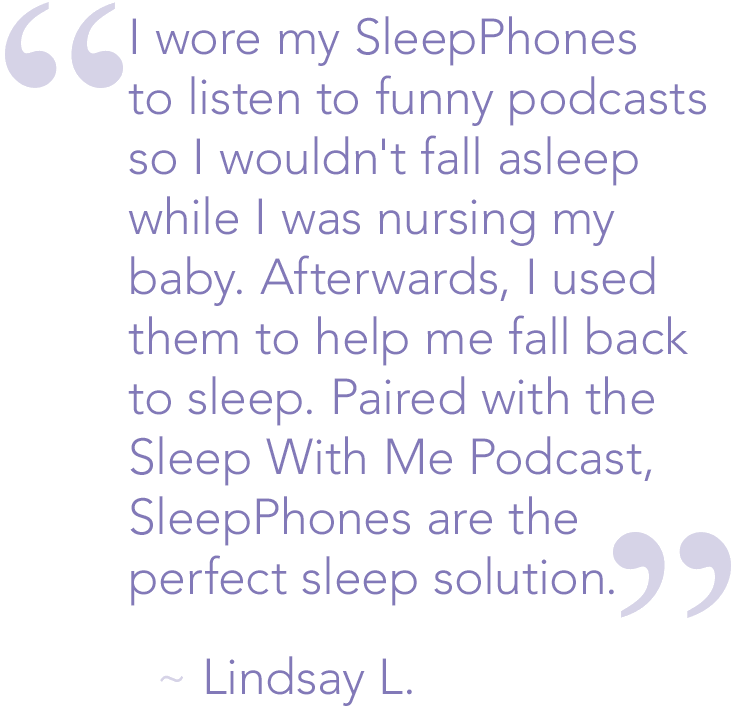How to Handle Postpartum Insomnia

At first thought, battling insomnia after having a baby seems like something that wouldn't happen. Aren't all new moms so exhausted that they fall asleep as soon as their heads hit the pillow?
For a sizable number of new moms, the answer is no. That's because postpartum insomnia is a real thing that affects millions of women every year.
Causes of Postpartum Insomnia
There are several causes that lead new moms to suffer from insomnia after having a baby. They include:
- Fluctuating hormone levels: After giving birth, hormone levels fluctuate wildly. This can wreak havoc on your sleep.
- Night sweats: Hormones are the reason for excessive postpartum sweating. A body holds on to a lot of water when carrying a baby. As it's flushed out, it's not uncommon to wake up in an uncomfortable tangle of wet sheets.
- Night feedings: Because they have very small stomachs, newborns need to eat about every three hours. Many moms find it hard to fall asleep again after being woken by a baby's cries like clockwork many times a day.
- General anxiety: It's no secret that caring for a new baby is stressful. Many moms find they're constantly on edge and can't unwind. Many others suffer from postpartum depression and other mood disorders.
- Postpartum sleep apnea: Sleep apnea is a sleep disorder in which breathing is briefly and repeatedly interrupted during sleep. Pregnancy can cause or exacerbate sleep apnea. That's because those fluctuating hormone levels and a heavy abdomen can restrict airways.
How to Handle Postpartum Insomnia
Fortunately, there are steps you can take when it comes to dealing with insomnia after baby. They include:
- Keeping your doctor in the loop. Definitely tell your doctor about your sleep issues at your postpartum appointment. He or she can give you advice and help you know when more help is needed.
- Sleeping when the baby sleeps. Yes, you've heard this one before. And, yes, it's not easy to do when the sun is shining, chores are piling up, and everyone wants to see your new bundle of joy. Those things really can all wait, so prioritize your well-being by napping when your baby naps.
- Limiting caffeine and screen time. Both caffeine and the blue light from electronic devices can make postpartum insomnia worse.
- Asking for help. Let your partner, friends, and family members pitch in so you can get the rest you need.
- Eating regularly and staying hydrated. Being hungry and thirsty can make it harder to fall (and stay) asleep.
- Creating a relaxation routine. Having a ritual to help you fall asleep can be very beneficial. Some ideas include using a soothing lotion, meditating, and listening to soft music or white noise. SleepPhones® wireless headphones are great for enjoying relaxing audio in bed because the flat speakers and soft headband let you listen in total comfort. Check out three of our SleepPhones® models below!

Postpartum insomnia is no walk in the park. But with time and these tips, you can overcome it.
Find more about managing sleeplessness at our "Insomnia" resource page.
